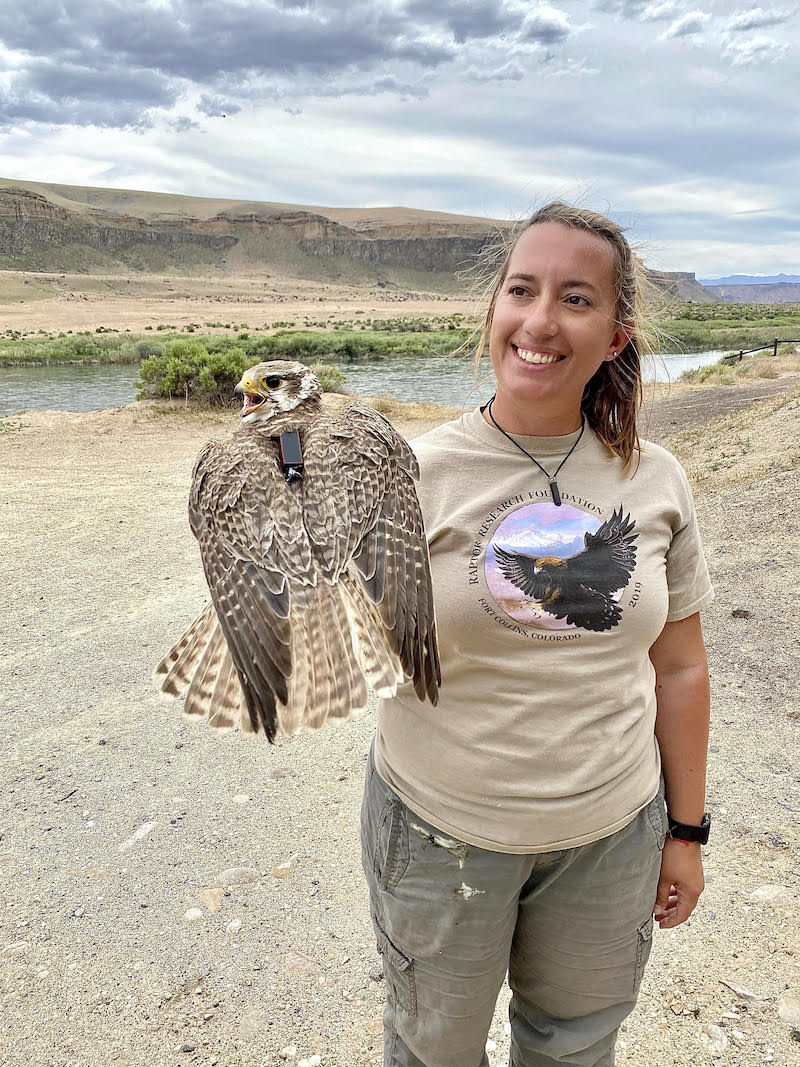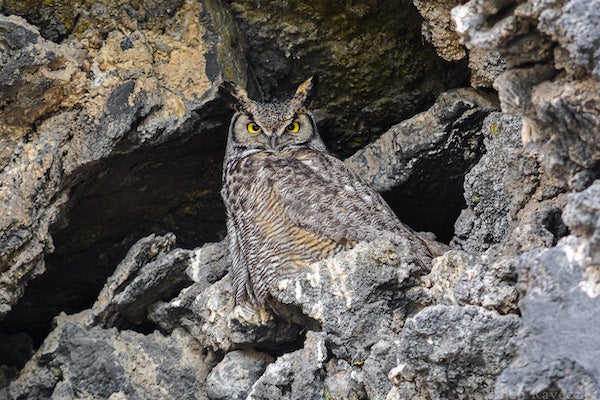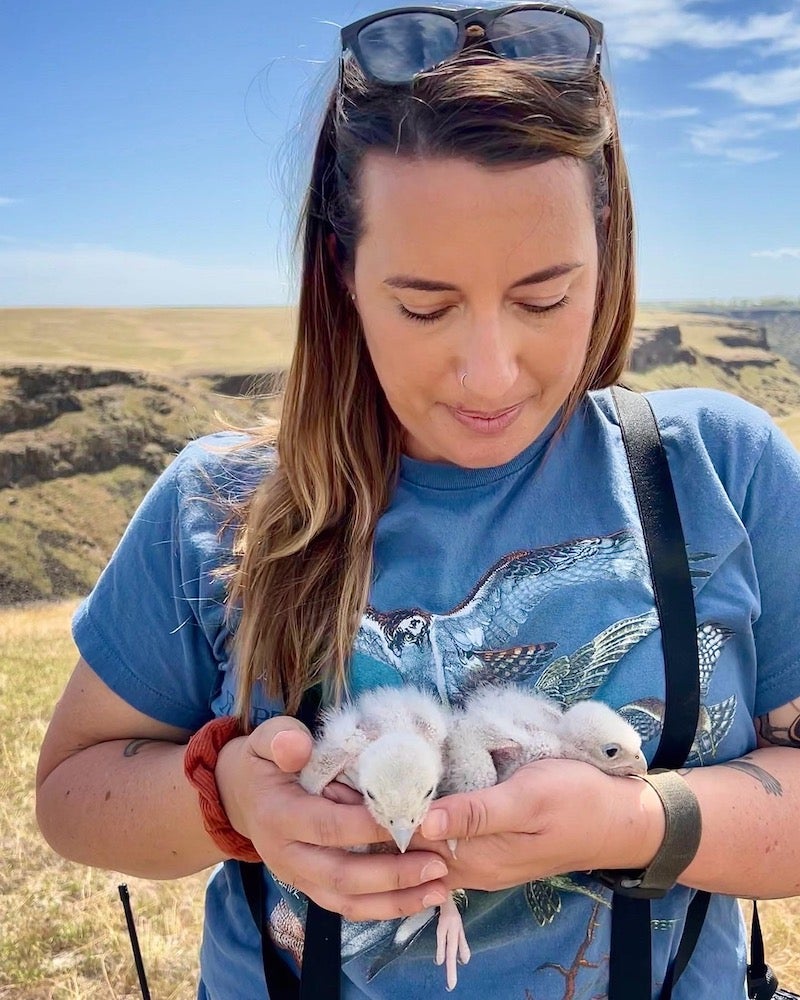
Eden Ravecca’s attention was stolen by a pair of striking yellow eyes nestled in a rock cave. They belonged to a perfectly camouflaged great-horned owl. She quickly pulled out her Nikon D5200 and snapped a shot of this magnificent predator she’d learned about. Eden’s love for nature began at a young age and she loves having a camera by her side when she’s out in nature to document what she sees from behind the lens.
“I’ve always been interested in nature, wildlife, plants, rocks, and anything outside,” Eden said.
She has the unique opportunity of being a part of the only master’s of raptor biology program in the world. This opportunity (only found at Boise State University) allowed her to continue exploring her passion for studying birds of prey. I talked with Eden in honor of National Nature Photography Day on June 15. She takes fantastic photos of birds of prey that should be shared along with her story of working with these birds.

Originally from Florida, Eden got her bachelor’s degree at Colorado State University. “When I was an undergrad, I was studying conservation biology to prevent extinctions and help the species to recover, things like that, and I started volunteering at a rehab center in Fort Collins where they rehabilitated injured birds of prey.” Her interest in conservation was born.
After a gap year, she moved to Boise to pursue a master’s degree in raptor biology in 2020 — a wild time for anyone to start an endeavor like this. She faced plenty of challenges, but successfully defended her master’s thesis and will be completing her degree in August. Then, she’s moving on to a Ph.D. program where she’ll continue to work on her project in ecology evolution and behavior.
Eden recognizes that both humans and wildlife must coexist, and sometimes humans’ actions cause consequences that they should be aware of. By studying raptors, she is an eyewitness to the effect of human intervention with wildlife and strives to help others be mindful too.
This raptor biologist has several unique accomplishments to her name. She’s a first-generation American. Her parents immigrated from Uruguay when they were young, and she grew up in the United States. As she became more interested in biology and conservation, “I didn’t always see scientists that looked like me. And that’s not even just Hispanics, but not a lot of women in general. It’s become a lot more common, and the conversation has come up a lot more about more representation and diversifying science which is really exciting to be a part of.”

Eden not only represents her culture within her field of science but also represents her family by being the first to continue her education.
She’s proudly a first-generation college student. “Being a first-generation student is also really challenging because you’re more on your own as far as figuring out how things work.” But with the help of Boise State’s resources, like Advising and Career Services, Eden was able to successfully chase her dream career. “I relied very heavily on a lot of help along the way and support from women advisors and professors and role models.”
Through Eden’s challenges of figuring everything out as she went, she found a sense of belonging. “We’re all kind of going through this experience independently, but very similarly. It’s been really awesome to be able to talk to other people and hear other peoples’ experiences as well knowing that I’m not the only one that feels like, ‘Oh my gosh, I shouldn’t belong here.’” The welcoming community at Boise State helped her feel like she’s part of something bigger. “I think the community here has been incredible, especially the scientific community.”
Eden’s heart is full of gratitude for Boise and the experiences she’s been given. “It’s been nothing short of life-changing. I’ve learned so much in the last 3 years that sometimes it’s kind of even hard for me to wrap my mind around.”
Her advice to other students is to take the opportunity to talk to and learn from those around you and in the field you’re interested in. She stressed the importance of thinking about your long-term goals and what you need to do to get there. Maybe thinking about getting a master’s degree is your next step.
Author
-

Molly
Content Writer